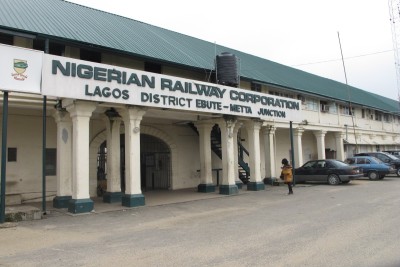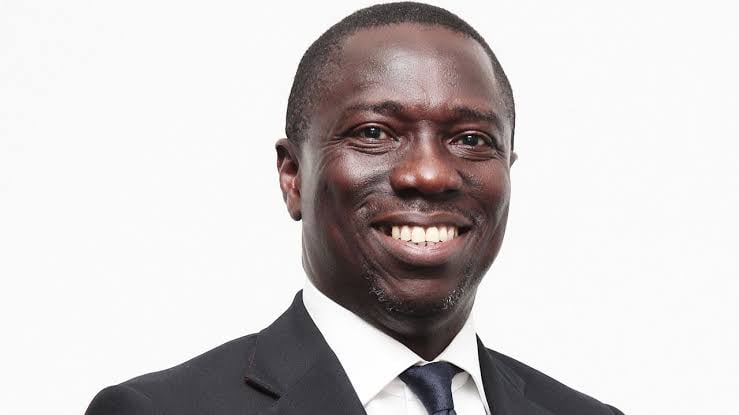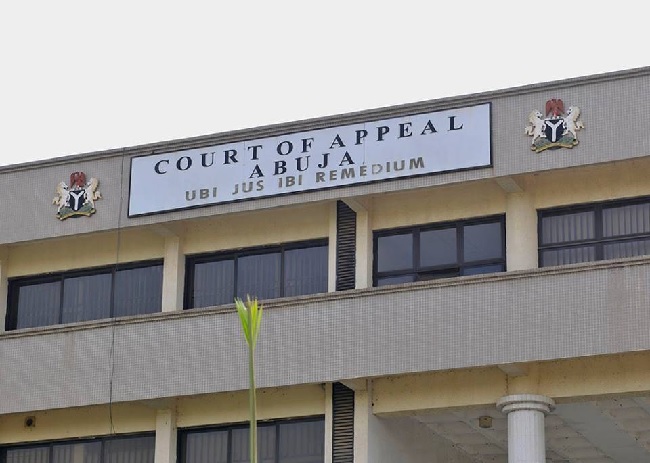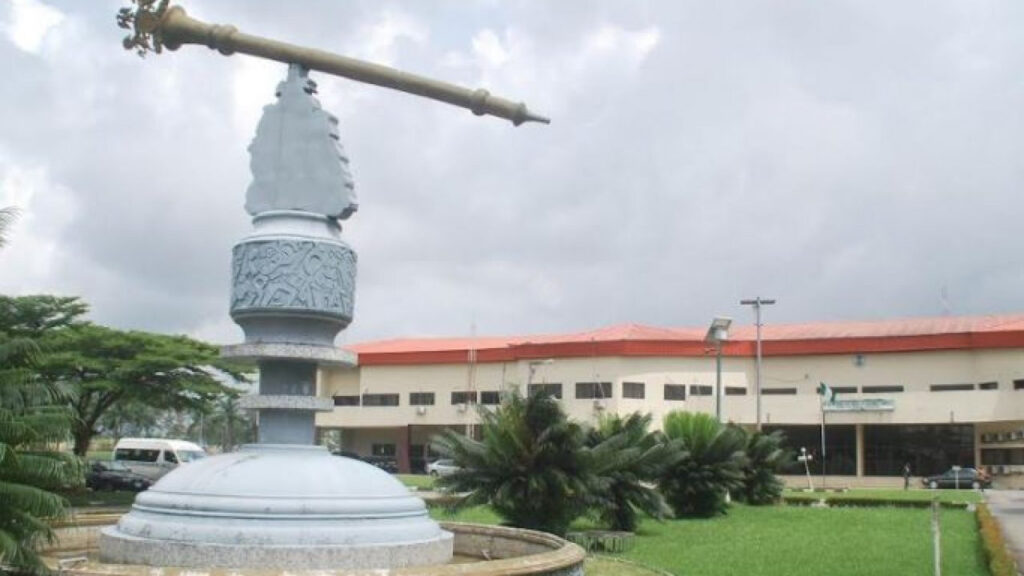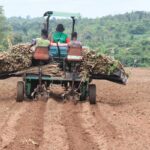
Governors’ inadequate support for the Western Nigeria Security Network, code-named Amotekun Corps, in the face of rising insecurity in the Southwest, is a red flag for the fate that awaits routine calls for state police, SEYE OLUMIDE writes.
The recent surge in insecurity across Southwest has placed a question mark on the effectiveness of the Western Nigeria Security Network, code-named Amotekun Corps, which was launched in January 2020, to support the conventional security agencies in addressing insurgencies, and secure the region’s forests against marauders.
The birth of the regional security outfit was seen as the answer to the prevalent farmers/herders crises, which claimed many lives and properties. They were also expected to protect farmers and their farmlands against invasion by killer herdsmen, terrorising the zone in their desperation to find green grasses for their cattle.
Former Governor of Ondo State and Chairman of the Southern Governors Forum, late Rotimi Akeredolu SAN, spearheaded the campaign for the establishment of the outfit, hinging his reasons on the fact that “foreigners” could not continue to have the audacity of killing Yoruba farmers on their lands while conventional security agencies, fold their arms waiting until they receive directives from Abuja before arresting them.
To give the outfit some bites, all the six state governors of Oyo, Ogun, Ondo, Osun, Ekiti and Lagos contributed 20 vehicles each, except Oyo that donated 33 vehicles, to assist the operatives in carrying out their duties, making a total of 133 vehicles for the start-up in 2020. The governors also procured 100 units of motorcycles each, making a total of 600 motorcycles.
Members of the outfit were drawn from local hunters, Oodua Peoples Congress (OPC), Agbekoya, Nigeria Security and Civil Defence Corps (NSCDC) and vigilante groups.
The six states’ House of Assemblies in the Southwest also passed their respective state Security Agency and Amotekun Corps Establishment Bill 2020 into law to give legal backing to the outfit. This came against the position of the then President Muhammadu Buhari’s led Federal Government, which threatened to declare the outfit illegal and that whoever was arrested with unauthorised firearms and ammunition among members of the security outfit would be prosecuted.
There was a respite among the people at the inception of Amotekun as crime rates significantly dropped but four years after, the case has changed, making people to doubt the effectiveness of the security outfit in achieving their core mandate. Kidnappings, the killing of traditional rulers, who are regarded as sacred beings, and open grazing that was once banned under the Anti-Open Grazing laws passed across the zone are now rampant.
The murder of two traditional rulers by suspected assassins in Ekiti State on Monday, January 30 has sent shivers down the spine of many people in the Southwest and confirmed fears of many that nobody is safe in the region.
The Elesun of Esun-Ekiti, Oba David Ogunsakin, and Onimojo of Omojola-Ekiti, Oba Olatunde Olusola, were accosted and shot. They were returning from a security meeting in Irele-Ekiti.
The Alara of Ara-Ekiti, Oba Adebayo Fatoba, survived the ambush.
Tracking the crime wave across zone despite the establishment of Amotekun, data obtained from the Journal of Geographic Information, in an article entitled: ‘Detection and mapping of violent crime hotspots in southwestern Nigeria’ which was carried out in 936 crime locations revealed that armed robbery, assassination and cultism were more pronounced in Lagos and Ogun states, with a high incidence of farmers/herdsmen conflicts observed in Oyo and Osun states. Increasing incidences of kidnapping are common in all the south-western states, but prominent in Ondo, Lagos and Oyo states.
The report also showed that most of the violent crimes are dominantly caused by high rate of unemployment while farmer/herdsmen conflicts were majorly triggered by the scarcity of grazing fields and destruction of arable crops.
The development is also creating increasing cases of rape and disruption of social groups with intake of hard drugs, cult-related activities, low income and revenue generation, and displacement of farmers and infrastructural damages.
According to the report, “Cases of robbery attacks, highway robbery, banks and house burgling are very common in Ekiti State. In recent times, kidnappings on the highway, which are most times attributed to herdsmen, have continuously created fear for the travelers along Ekiti roads. The kidnappers often make use of the thick forest to perpetrate their evil acts.
“The recent waves of kidnapping in the state have however, taken a new dimension to the extent of killing and taking hostage of kings and prominent people in towns and villages with impunity.”
In Ondo State, cases of armed robbery and kidnapping are significantly high. The report showed that kidnapping activities in Ondo are frequent along Akure-Owo-Ose roads, Akoko area, and boundary towns.
In Lagos State, armed robbery was reported to be predominant over other violent crimes. About 80 per cent of the crime incidents reported and surveyed were armed robbery cases that occurred along the highways and suburban Local Government Areas such as Ikorodu, Alimoso, Ibeju-Lekki and Ojo. This is followed by kidnapping, which is about 26 per cent and assassination cases at 20 per cent. Rape and cultism were placed at 19 per cent and are reported to have been growing in areas like Ikorodu and environs, particularly, Bayeku and Ofin-Ile; Ojo local council that hosts the Lagos State University (LASU) and others.
The report also identified other crimes like assault, which it placed at three per cent and farmers-herdsmen clashes at one per cent. The farmers-herdsmen clashes were reported at Imota town in Ikorodu LGA some few years back.
Despite the presence of Amotekun, Ogun State is still vulnerable to crimes like armed robbery, which the report said are predominated over other crime types in the state. This could be explained by the fact the state shares a boundary with Lagos State and the Republic of Benin. Assassination was also reported to be on the high side. Several cases of farmers-herdsmen clashes were reported at Opeji Odo town in Abeokuta North, Iwoye and Ilaro town, just as cases of kidnapping and rape were also alarming according to the report.
Cultism though records the lowest percentage but the fact that human lives are endangered during clashes between two opposing cult groups, particularly in Iberekodo, Ado-Odo and Igbesa towns, indicated that the operation of the cults runs contrary to the norms and values of the residents in the affected communities.
For Osun State, Amotekun formation has not reduced the farmers-herdsmen crises as expected just as the cases of armed robbery and kidnapping are said to be high. For instance, the data “placed herders/farmers clashes at 94 per cent, armed robbery at 90 per cent and kidnapping at 67 per cent.”
It further revealed cases of crime incidents along the Ilesa-Akure Expressway, Ilesa-Osogbo road and Ilesa-Ile-Ife-Ibadan Expressway. Cases of assassination and cultism particularly in Wasinmi in Irewole local council, Osogbo and Iragbiji in Boripe local council are “nine per cent and eight per cent respectively. Rape is also on the increase with four per cent incidents in the major towns in the state.”
For Oyo State, armed robbery is allegedly predominant, taking 92 per cent over other crime types in the state. Farmers-herdsmen clashes have become worrisome in places like Iganna, Tapa, Otu, Eruwa and Otu towns with 65 per cent incidents. Rape and cultism recorded less than “10 per cent.”
The report summarised the preponderance of crime incidents particularly armed robbery and kidnapping along highways at 55.3 per cent. The affected highways include Lagos-Ibadan, Akure-Ilesa-Ibadan, Ore-Ijebu Ode-Lagos, Akure-Owo-Abuja, Owo-Benin and Ibadan-Iseyin-Saki.
Not relying on only Amotekun to complement the efforts of the security agencies to curb the trend, Governor Makinde recently reiterated his call for state police as the only panacea to the rising wave of insecurity, not only in the zone but also across the country.
The Guardian findings showed that one of the major factors inhibiting the functions of Amotekun is the lip services the Southwest governors are paying to the outfit. Only Governor Makinde is said to be consistent in providing funds for the operations of the security outfit.
At present, it is only the Amotekun corps vehicles from Oyo State that are parading the Lagos-Ibadan Expressway in the company of the police and military personnel.
Until his death, Akeredolu took Amotekun as his child, which he nurtured and paid attention to. However, the situation is different in Ogun, Osun and Ekiti states where the governors were accused of not doing enough to make Amotekun operatives perform as expected. Lagos on its part did not have Amotekun, it tags its local security outfit as Neighbourhood Watch.
It was also discovered that Amotekun is ineffective because there are no central coordinating units of Amotekun in the region even though the majority of the states were linked at various border towns.
Besides, some of the commandants were also accused of living largely after their appointments, a situation that also led most of the corps members to either be lackadaisical or indisciplined about their jobs.
For instance, The Guardian investigation revealed that one of the governors withdrew most of the vehicles given to Amotekun immediately after the launching in 2020, perhaps one of the reasons crime rate is rampant in the state today.
Meanwhile, President Yoruba Ronu Leadership Forum, Akin Malaolu, criticised Southwest governors, who have been clamouring for state police to first and foremost do whatever is needed to make Amotekun work in their respective states.
He said if the Amotekun corps fails or can’t perform up to the maximum, the same predicament will face state police.
Oyo State Commandant of Amotekun, Colonel Bisiriyu Olayinka Olayanju (rtd.), denied the high rate of insecurity in the state as being projected and refused to speak further.
According to him, “If the law does not allow Amotekun to carry sophisticated firearms like conventional security agencies, does the law prevent the governors from procuring night vision equipment for Amotekun operatives to comb the forests at night? Other things can be provided for Amotekun to stem crime but most of the governors are not doing it. If therefore Amotekun fails under the noses of these governors, how would state police work?”
The Guardian learnt that a trust fund is being arranged for Amotekun ahead of its fifth anniversary in 2025. According to sources, “The purpose of the fund is to centralise the activities of the outfit and also make its funding independent of the governors. This is not to say that the state will cease funding the outfits but there is going to be a pool, whereby states with lesser financial power could benefit from the pool.”
When contacted, the Corp Commander of Amotekun in Osun State, Brigadier-General, Bashir Adewinmbi (rtd), confessed that the protracted illness and eventual death of Governor Akeredolu affected Amotekun operations. He, however, disclosed that Governor Adeleke has promised to do whatever is necessary to reinvigorate the outfit.
Oyo State Commandant of Amotekun, Colonel Bisiriyu Olayinka Olayanju (rtd.), denied the high rate of insecurity in the state as being projected and refused to speak further.




